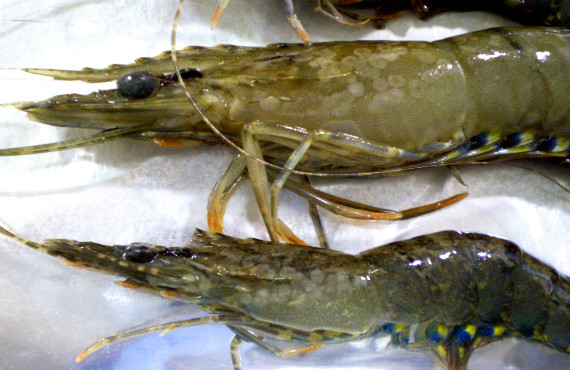The NSW Department of Primary Industries (DPI) is reminding recreational fishers to maintain strict biosecurity measures as the Queensland industry continues to respond to an outbreak of the highly contagious white spot syndrome virus in prawns.
DPI is reminding recreational fishers in NSW waterways to only use prawns labelled as ‘bait prawns for bait’ when fishing.
NSW Acting Chief Veterinary Officer Juliet Corish said white spot, which affects crustaceans, has been detected in a number of prawn farms in Queensland.
"There is currently no evidence of white spot disease in NSW prawns and we want to keep it this way. To help minimise the risk, DPI placed restrictions on the importation into NSW of any uncooked decapod crustaceans (such as prawns, crabs, yabbies, Moreton Bay bugs and lobsters) or polychaete worms from a designated area encompassing all affected areas in south east Queensland," said Dr Corish.
"Prawns intended for human consumption should never be used for bait or berley and unused prawns should never be disposed of in waterways.
"Fishing and boating is a fun pastime for the whole family however to prevent unwanted aquatic pests and diseases it is recommended to “Make ‘clean’ part of your routine” and clean all aquatic gear and equipment when moving between NSW waterways."
Stakeholders should report any suspicion of white spot disease to the Emergency Animal Disease Hotline on 1800 675 888.
Affected prawns may have loose shell with numerous white spots on the inside surface of the shell and a pink to red discolouration.
Consumers are also reassured that the incident has no human health or food safety implications and no impact on local product.
Everybody plays a part in safeguarding NSW’s biosecurity and protecting our economy, environment and community and our reputation as a clean and safe producer of healthy food.
For more information on NSW restrictions on importation from the Queensland south east affected region visit White Spot Disease.
For more information about on the detection of white spot in farmed prawns in south east Queensland go to outbreak.gov.au or call 1800 900 090.
